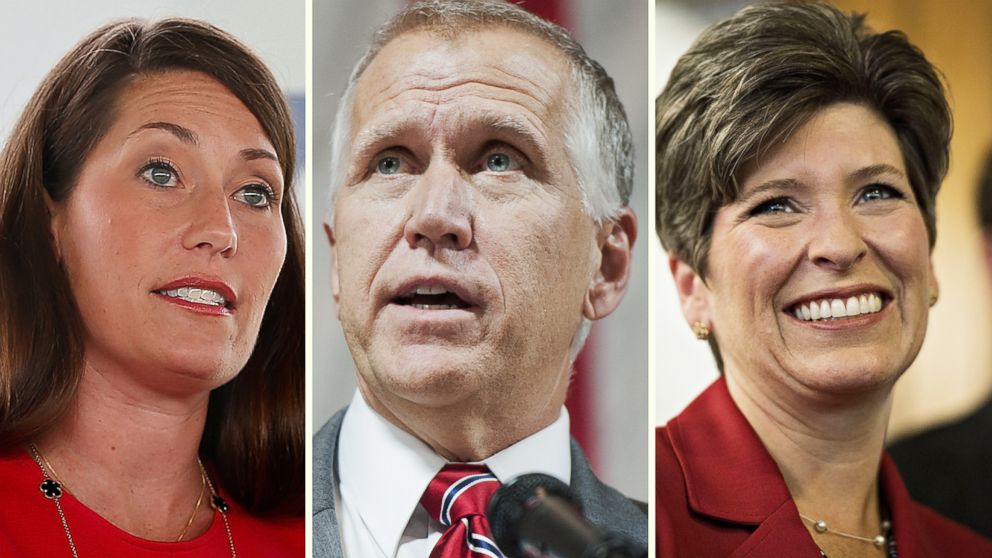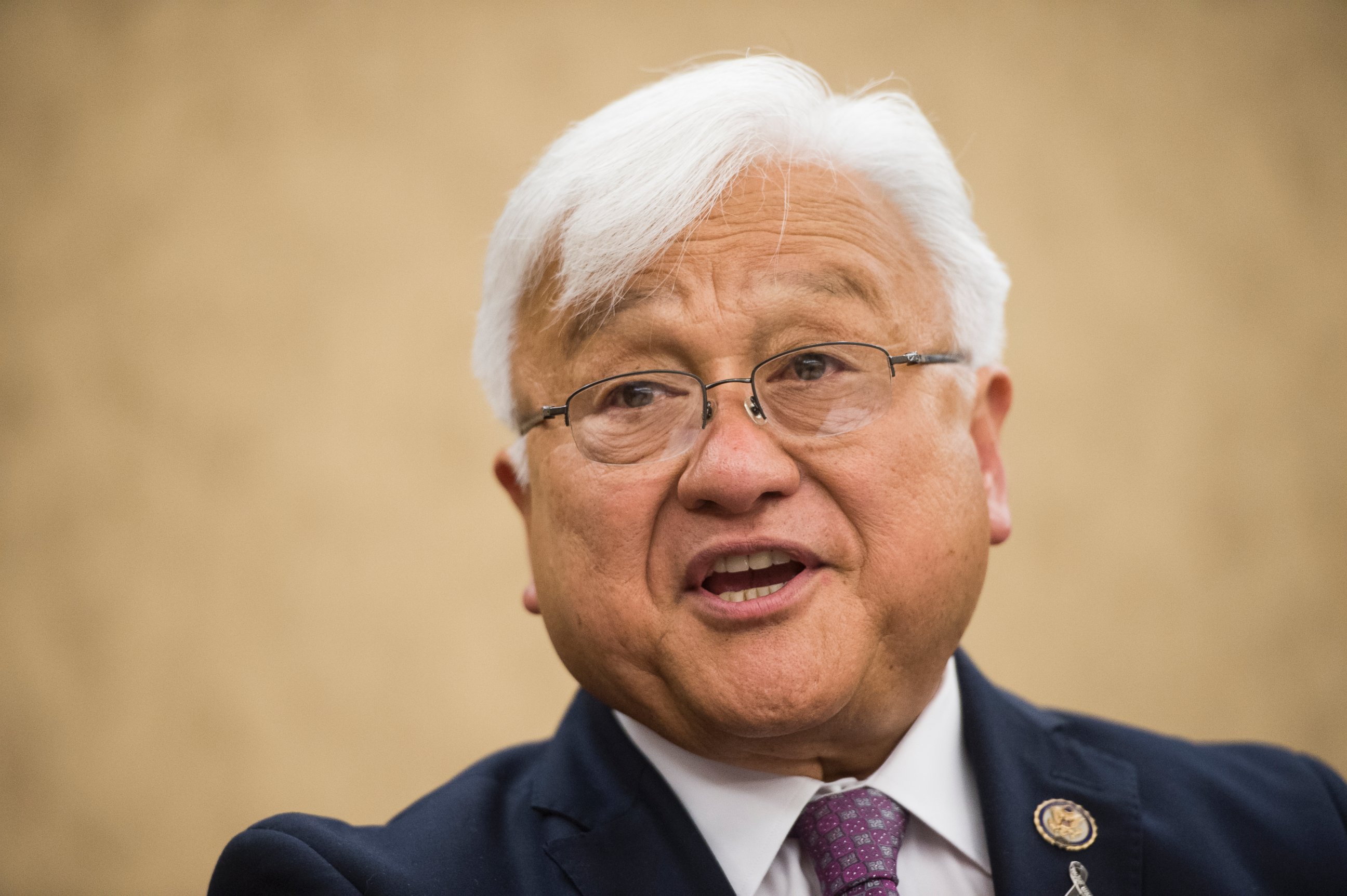What's Behind the 2014 Midterm Election Cycle's Trendiest Attack Line
Pressure to raise money has turned into a no-win situation for campaigns.

— -- This midterm election cycle’s trendiest attack line has put incumbent members of Congress in a no-win situation.
The more time these lawmakers spend away from the committee rooms of Capitol Hill, the more vulnerable they are to attacks for not meeting the most basic requirements of public office. And yet the things that often take them away from committee duties, particularly raising money, are integral to their ability to win re-election.
In the closest Senate races of 2014, incumbents have been attacked in debates and television ads for truancy, allowing outsider candidates to posture against what they see as a corrosive habit in Congress.
In Kentucky, Democratic candidate Alison Lundergan Grimes accused Senate Minority Leader Mitch McConnell of skipping Senate Agriculture Committee meetings. Iowa Republican candidate for Senate Joni Ernst has gone after her Democratic opponent Rep. Bruce Braley for his attendance on two House committees. Republican challengers in Colorado and New Hampshire have attacked Senators Mark Udall and Jeanne Shaheen for ignoring national security briefings. And in North Carolina, Republican Thom Tillis has pursued Sen. Kay Hagan for skipping a Senate Armed Services Committee hearing for a fundraiser -- something Hagan acknowledged.
The reason these attacks have increased largely comes down to money, according to historians, strategists and members of Congress.
"It takes a lot more money to run for re-election than it did in the 1930's and '40s. ... The demands on time are tremendous," said Betty Koed, an associate historian at the Senate Historical Office. "It's the nature of the beast of the modern Senate."
The convoluted structure and operations of the Senate also plays a role, Koed added.
“Senators have a lot of committee assignments, their schedules are booked up tight,” she said. “It’s a rare luxury for a Senator to go to one hearing and sit there for three or four hours.”
Official attendance-taking in the Senate can be patchy, and senators are free to mix in fundraising with meetings. Sometimes aides fill in for their bosses, attending hearings and meetings and taking notes for later review. Often lawmakers merely drop by hearings to make a statement before taking off.
And as Politifact, the non-partisan fact-checking website, noted in its study of Sen. Hagan’s Armed Services Committee absences, it is often difficult to process congressional attendance records because of the classified nature of closed-door meetings.
Michael Steel, House Speaker John Boehner’s press secretary currently on leave while working for the North Carolina Republican Party, has helped coordinate criticism of Sen. Hagan’s record.
“I think people understand that the first job of a U.S. senator is to show up to work, and Sen. Hagan simply hasn’t done that,” he told ABC News. “There’s no question that elected officials have a lot on their plate, but it just comes down to priorities.”
For challengers, the benefits of attendance attacks are clear, according to Democratic strategist Larry Grisolano.
“If you say this candidate missed 20 votes, and here’s the days ... it’s pretty cut and dry,” he said. “It’s something people can readily understand, and it’s hard to obfuscate in response.”
Grisolano helped direct messaging for President Obama’s two presidential campaigns, and is currently working for Democrat Ro Khanna, the opponent of Rep. Mike Honda in California’s 17th Congressional District. Khanna has criticized Honda, also a Democrat, for missing almost 500 votes while in Congress, even though that number only makes up around 5 percent of the Congressman’s total votes.
Honda told ABC News that he’d be able to avoid some of the criticism if certain congressional formalities were adjusted.

“One aspect of my job that has been very important to me is coming home to my district every weekend, which keeps me better connected to the people I am in Washington to represent. For representatives who live further away from Washington -- the West Coast, Hawaii or Alaska -- this does present an added demand on time,” he said. “I think we can make better use of technology to fulfill some of our official duties from offices in our districts, which would allow us to spend more time amongst our constituents.”
Honda also noted that campaign finance reform would help. “I would love to see the need for fundraising completely eliminated or reduced greatly by passage of public financing of elections and other important campaign finance reforms," he said.
Sen. Heidi Heitkamp, D-North Dakota, an active voice for campaign finance reform and co-sponsor of the DISCLOSE Act, agreed.
“An outrageous race to out-raise and out-spend is usurping the battleground of ideas -- and we need to work together to remember what American politics is supposed to be all about,” she told ABC News. “Our opportunity throughout campaigns should be to extend our public service to the American people -- not the almighty buck -- and we need to get back to business.”
Meredith McGehee, policy director of the Campaign Legal Center, an independent campaign finance watchdog group, described members of Congress as “full-time fundraisers and part-time legislators.” She added that for many lawmakers, four hours per day of fundraising “is about the average,” something that was confirmed last year after the Huffington Post obtained a PowerPoint presentation delivered to freshmen members by the Democratic Congressional Campaign Committee.
“I think that there are a lot of members of Congress who would far prefer to spend more time in committee hearings, on the floor, tending to their congressional duties than the fundraising that’s required by the system that currently exists,” Grisolano said. “This kind of perpetual fundraising that the system imposes on incumbents genuinely does make them make choices like that. That is part of our system now.”
ABC News' Benjamin Siegel contributed to this report.
Get real-time results pushed to your phone on Election Night. Click here to sign up for the races that matter most to you.




